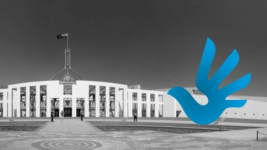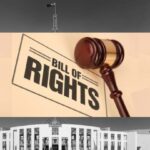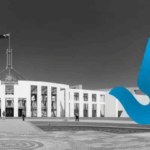The ACT to Strengthen Individuals’ Rights, as Labor, Yet Again, Ponders Federal Protections

Australia is notorious for being the only democratic nation globally that’s failed to enshrine citizens’ basic rights in national law. And federal Labor is, yet again, holding an inquiry that could resolve this glaring anomaly – that’s unless PM Anthony Albanese reneges, like predecessor Rudd did in 2010.
Federal parliament convenes in Canberra, located in the Australian Capital Territory, which was the nation’s first jurisdiction to pass laws guaranteeing the rights of civilians. And such legislation, which has traditionally been called a bill of rights, is now increasingly referred to as a human rights act.
Other jurisdictions have followed the ACT’s lead. Victoria has its Charter of Human Rights and Responsibilities 2006 (VIC), whilst Queensland enacted its Human Rights Act 2019 (QLD). However, in the latter case, the Palaszczuk cabinet has repeatedly shown how weak such protections can be.
But in contrast, the ACT Labor Greens government is currently contemplating an amendment to its Human Rights Act 2004 (ACT), which would ensure that more Canberrans are able to take action when a public authority has allegedly breached their basic rights or liberties.
And having been a strong advocate for the federal and ACT reforms, Civil Liberties Australia (CLA) considers the current federal government’s rights inquiry could be the breakthrough our nation has been waiting for, as Albanese may dare to tread where Rudd, Hawke and even Whitlam feared to.
No rights without remedy
“The ACT is about to pass a law that will let Canberrans ask a local Human Rights Commission to enforce their rights by mandatory conciliation with any bureaucratic body that’s trying to thwart them,” CLA chief executive Bill Rowlings told Sydney Criminal Lawyers.
“In the ACT, anyone can now – and will be able in the future – to take a case to the Supreme Court, but that’s a very slow and expensive path – maybe two years long and costing thousands of dollars at least,” he continued. “It’s really only for big legal questions and deep pockets.”
On introducing the Human Rights (Complaints) Legislation Amendment Bill 2023 in September, ACT human rights minister Tara Cheyne told the chamber that the capital’s Human Rights Act (HRA) is unique as it enables citizens who’ve had a right breached by a public authority to seek recourse.
Yet, section 40C of the ACT rights legislation only permits the seeking of such remedies via the ACT Supreme Court, which isn’t easily accessible to many. So, newly proposed section 41D of the HRA would enable those with grievances to seek remedy via the ACT Human Rights Commission.
According to Rowlings, this conciliation process should cover about 95 percent of complaints, bringing resolutions within months, and if this process fails to provide resolution, the issue can then be taken to a preexisting small claims tribunal for a legal ruling.
“The combination of conciliation and a possible quick legal ruling is what we call the innovative ‘No Rights Without Remedy’ (NRWR) principle,” the civil liberties advocate added. “Clear, consistent and accessible.”
A pathway to secure rights
CLA considers that successfully amending ACT rights law via the provisions that establish the NRWR principle in practice is a step that will provide all Canberrans with the ability to challenge rights encroachments on the part of authorities, and it will likely be replicated in other jurisdictions.
But Queensland Labor’s dismissive approach to its Human Rights Act has cast shadows over how much protection legislated rights can provide, as the Palaszczuk government has twice suspended its HRA this year to make it easier to deny child detainees bail and lock them up in adult facilities.
Section 43 of the Human Rights Act 2019 (QLD) permits Queensland parliament to pass laws that breach one or more protected rights, via an override declaration, which can only be used in “exceptional circumstances”.
“All human rights acts in Australia are set up by statutory legislation, that is, passed by the relevant parliament,” Rowlings explained. “Any parliament can pass a new law which limits – or extends – an earlier law.”
“The only way to safeguard human rights for certain and for the future would be to change the constitution to include rights in a way that can’t be altered,” the liberties advocate added.
The US has its bill of rights inserted into the nation’s constitution, which means government can’t override it. And while Canada passed a statutory bill of rights in the 1960s, which is what our country proposes, the North American nation has since moved to constitutional rights protections.
According to Rowlings, Australia could take a similar path to Canada some decades after the statutory rights bill has been passed. And he adds that in the meantime, there will be regressive moves by some governments, but opposition to such moves can be reflected at the polling booth.
A gaping lack
“Once passed, human rights law and thinking will underpin every subsequent piece of legislation and future government decisions,” explained Rowlings. “The jurisdiction’s entire ethical infrastructure – the way it governs and manages itself – becomes more difficult to amend or create exceptions.”
The CLA CEO remains confident that Albanese will progress the rights protections his predecessors have denied. And an example of why there’s more impetus now is that the Australian Human Rights Commission released its HRA position paper just weeks before the federal inquiry was announced.
The liberties advocate further considers that the no rights without remedy principle will be reflected in federal legislation as the AHRC paper has a focus on seeking remedy, while the 2021 ACT No Rights Without Remedy petition was so successful the amendment legislation is about to be passed.
The Parliamentary Joint Committee on Human Rights Inquiry into Australia’s Human Rights Framework, will report its findings to the federal government next March. And of the 331 submissions it received, 92 percent of them supported the enactment of a federal HRA.
“The question will then be whether the government will commit to the strong supporting evidence likely compiled by the committee and enact one,” explained Rowlings. “That decision will come down to government priorities.”
Rowlings further explained that over 80 percent of Australians now support enacting a federal HRA, which has only grown after the limitations to rights that were exposed during the COVID pandemic showed that without any protections government can simply override most of our basic rights.
But it’s not just COVID that’s led to calls for rights protections. Rowlings pointed to the AFP press raids of 2019, along with the ongoing political prosecutions against ex-ADF lawyer David McBride for exposing war crimes and former ATO officer Richard Boyle for revealing dodgy tax office practices.
“We’re an apathetic lot, but we always, in the end, find a way to stand up for the little people, and I am optimistic that the government will too,” Rowlings concluded on a positive note.
“That’s what a human rights act will do, ensure a fair go and rights for all Australians, not just rich people and big corporations.”







